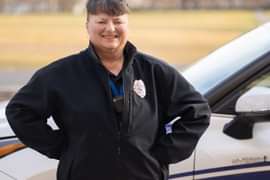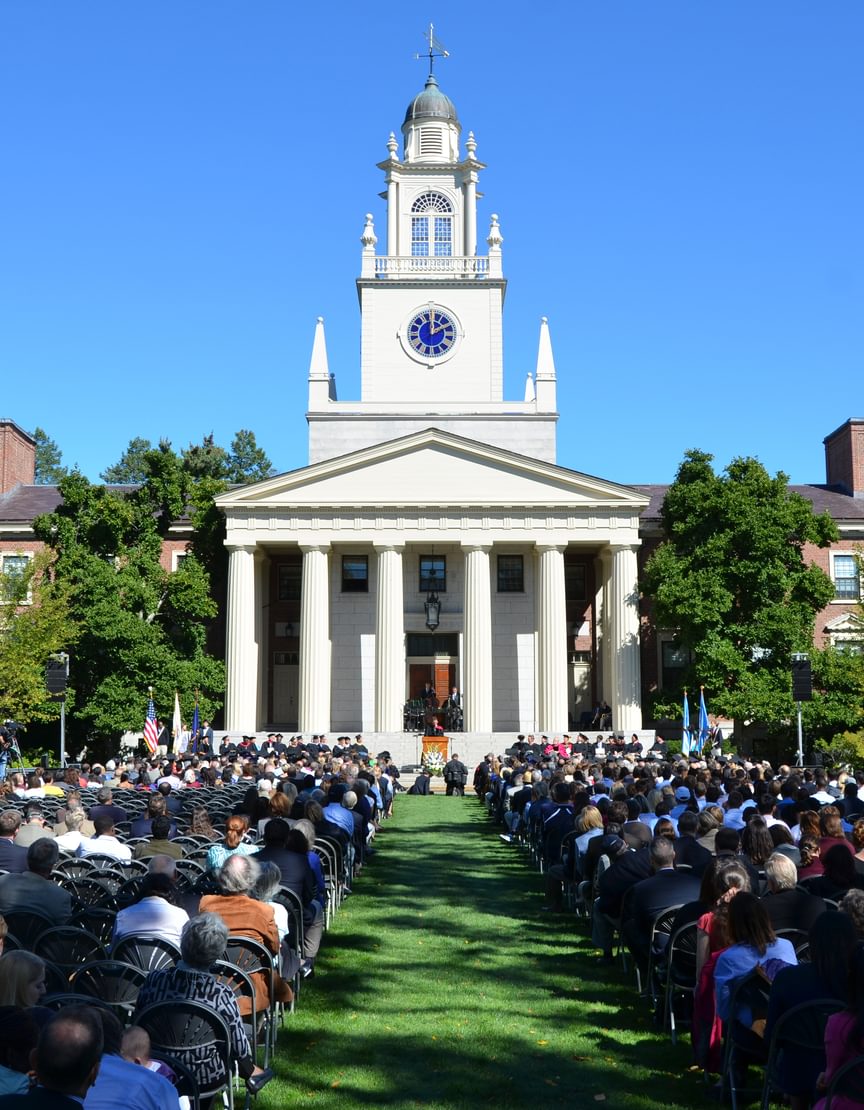
May 05, 2022
Passing the gavel
Five things to know about Andover investituresby Katie Fiermonti
On May 7, against a backdrop of waving flags and excited onlookers, Andover will formally mark the installation Raynard S. Kington MD, PhD, P’24 as the Academy’s 16th head of school—two years after he began his tenure. In a ceremony long delayed by the pandemic, Kington will officially take his place at Andover’s helm.
But what is an investiture, exactly? Why all the pomp and fanfare, and how has the ceremony evolved at Andover over the past 244 years? We’ve gathered the top five things to know about this exciting Big Blue event.
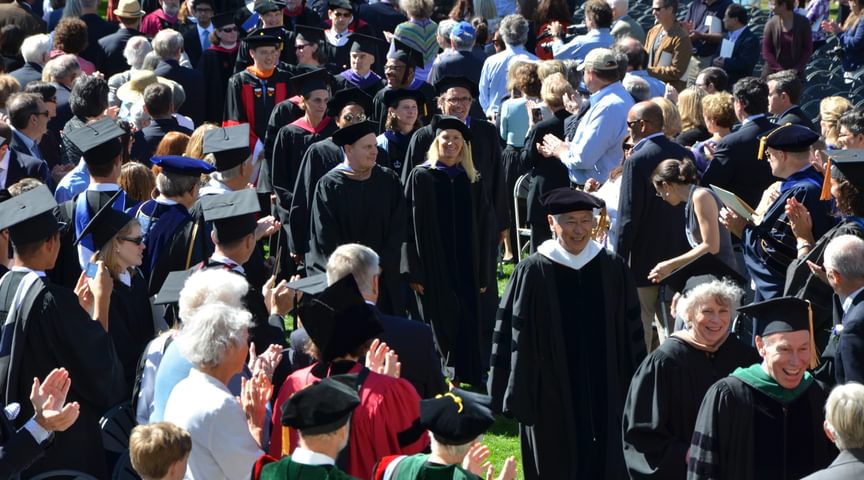
Ancient origins
1. The word investiture—from the 14th-century Latin word investitura—means “ceremony of clothing in the insignia of office.” Modeled after the bestowing of knighthoods during medieval times, the ritual remains in use today during the swearing-in of public officials, in higher education, and even by the British Royal family. At Kington’s investiture, Andover trustees will process across the Richard T. Greener Quadrangle to Samuel Phillips Hall in full academic regalia—robes, tams, and hoods—in a symbolic nod to the tradition’s rich pageantry and etymological origins.
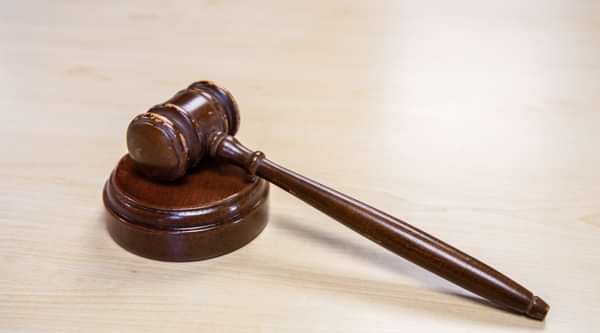
Pearson’s gavel
2. The 1778 installation of Eliphalet Pearson, PA’s first head of school—then a position known as “preceptor”—was perfunctorily marked by Pearson’s signature on an employment contract, dated one day before the school opened to students. As utilitarian as Pearson’s introduction to Phillips Academy was, the Puritan educator’s own wooden gavel has been ceremoniously presented to the incoming head of school at every Andover investiture for more than two centuries. It is currently housed in the Trustee Room.
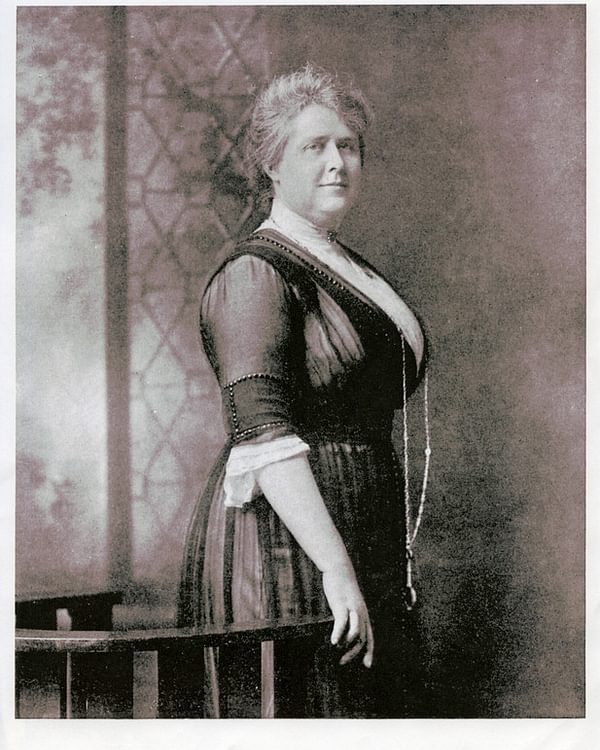 Bertha Bailey, Abbot Academy Principal, 1912–1935
Bertha Bailey, Abbot Academy Principal, 1912–1935
Speech! Speech!
3. An investiture offers the investee the chance to showcase educational philosophies and goals. In October 1912, new Abbot Academy principal Bertha Bailey spoke to the crowd gathered in McKeen Memorial Building: “…I now pledge myself, so far as in me lies, to guard and preserve those ideals of scholarship and character and righteousness that have always prevailed in this school.” Sixty years later, incoming headmaster Theodore R. Sizer, who would oversee the merger of Abbot and Phillips academies the very next year, stressed a need for diversity. “Phillips…needs more students from foreign lands, more students from various American minority groups, and more from the lower middle and middle class.”
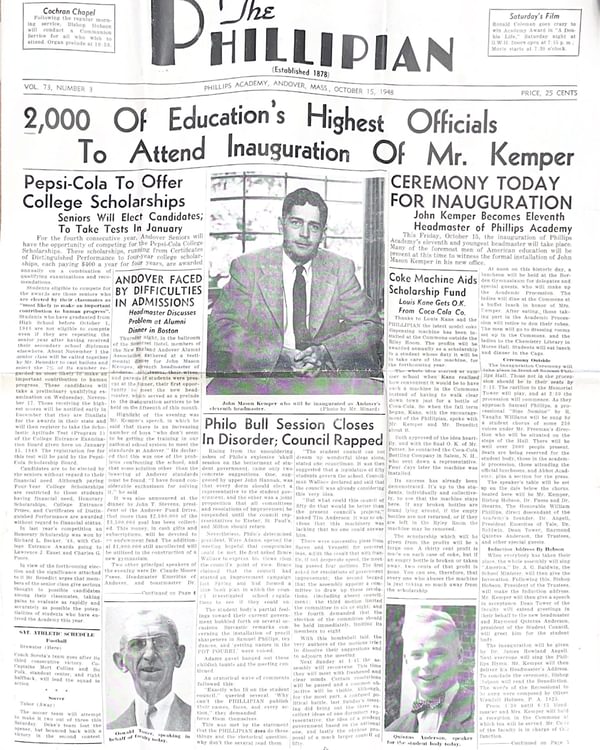 John Kemper, on the cover of the Phillipian
John Kemper, on the cover of the Phillipian
A new era
4. Phillips Academy held its first major modern-day investiture—then called an inauguration—in 1948 for PA’s 11th headmaster, John M. Kemper. It proved to be the blueprint for all subsequent investiture events. As noted in Frederick Allis’s Youth from Every Quarter: “A ceremony such as this had not been considered necessary for earlier headmasters, but since John Kemper was not widely known in the academic world, over two thousand headmasters, college presidents, and the like, were invited to welcome the new man properly. The auspices were favorable: the fall weather was gorgeous, the academic costumes, colorful, the mood, sanguine.”
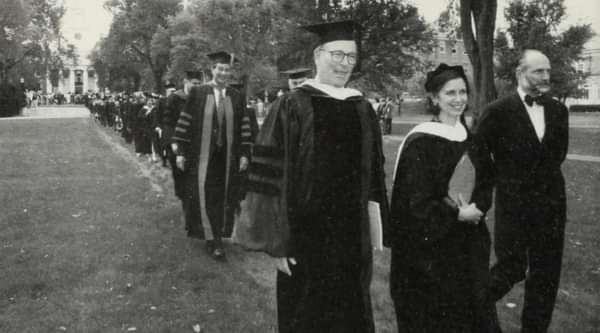 Barbara Landis Chase at her investiture in 1994, flanked by Board President David Underwood ’54 (left) and husband David Chase (right).
Barbara Landis Chase at her investiture in 1994, flanked by Board President David Underwood ’54 (left) and husband David Chase (right).
Embracing the future, honoring the past
5. Over the years, Andover investitures often reflect the tenor of their time and sometimes even the personality of the head of school—think commemorative t-shirts celebrating Kington! But tradition remains the unifying factor; Andover’s history is always honored. In 1994, Barbara Landis Chase, PA’s first woman head of school, was presented on the dais with a bouquet of flowers—red roses to symbolize Abbot, blue flowers for Phillips. Such evergreen touches—from the rousing Clan MacPherson Pipes and Drums to the customary post-ceremony luncheon—offer a timeless tribute to the school’s legacy, even as the Academy moves forward into its bright future.





